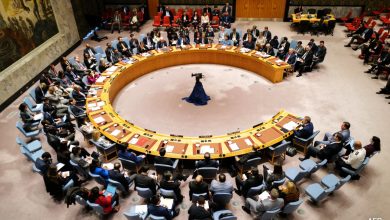2 women unite to take ‘honour’ out of killing in Pakistan

Islamabad: So much divides two women who fought in the battle to take the “honour” out of killing in Pakistan.
Naeema Kishwar shrouds herself in a burqa, showing only her eyes. She belongs to a political party that has been linked to the Taliban. And she comes from deeply conservative tribal lands where girls have been killed for going to school.
Sughra Imam sometimes wears a scarf draped lightly on her hair, but often her head is bare. She belongs to a liberal party whose leader, Benazir Bhutto, the first female prime minister of this predominantly Muslim nation, was assassinated by extremists. She comes from a prominent Pakistani family and was educated at Harvard.
But at least one thing unites the two: they have spent their political careers fighting for women. Although they have never met, and usually are on opposite sides of the aisle, Kishwar and Imam became unlikely allies in the battle to pass a historic law to protect women from murder by members of their own families.
In this country with a complex legal system that is a tapestry of Islamic Sharia law and British common law, legislation passed decades ago has allowed many of those who kill in the name of family “honour” to go free.
A family’s honour can be “tarnished” by something as innocent as sitting next to an unknown man, or helping a friend elope with the man of her choice. Invariably the “honour” of a family is tied to a woman’s chastity.
The law decrees that relatives of a murder victim can forgive the killer; they can even take money in exchange for the killer’s freedom. Human rights groups argued that in the case of “honour” killing, this granted immunity to killers, because both victim and perpetrator are usually family members. Hard-line Islamic groups, however, defended forgiveness as a religious edict from the Quran.
But the mood in the country began to shift in the last year with the rise of social media and a proliferation of television channels featuring dramas about girls who find love and fight back against sexual assault.
The new channels started covering “honour” killings, and Pakistanis grew outraged over a series of grotesque murders that happened with such regularity they could no longer be seen as isolated cases: a daughter burned alive by her mother, a social media star drugged and strangled by her brother, a teenage girl ordered by a tribal council to be bound and burned like Joan of Arc for helping a friend elope.
“There are changes in Pakistan,” says Imam. “Most of the people in Pakistan are young. They are searching for change.”
After Imam became a member of Parliament’s upper house seven years ago, the poor who tilled the land in her constituency in Punjab province started coming to her with stories of a man who had killed his wife after seeing her talking to another man, or of a brother who killed his sister for having “illicit” relations.
“These were women whose names I didn’t even know,” she says. “They had received no media coverage, and I thought: ‘How do we protect these vulnerable women?'”
She saw that the men who killed showed no worry of even going to jail.
“No one was ever afraid. They never felt they would be punished. They knew they would be forgiven,” Imam says.
She insists that Islam’s provision of forgiveness wasn’t intended to apply to premeditated murder.
The provision was meant to end feuds, “to bring peace. It was not meant to be able to kill with impunity,” she says. “The law has been perverted.”
When Imam began to craft her bill three years ago, she wanted the killings removed from the Islamic law known as Qisas and Diyat, which allows the family to forgive a murderer.





